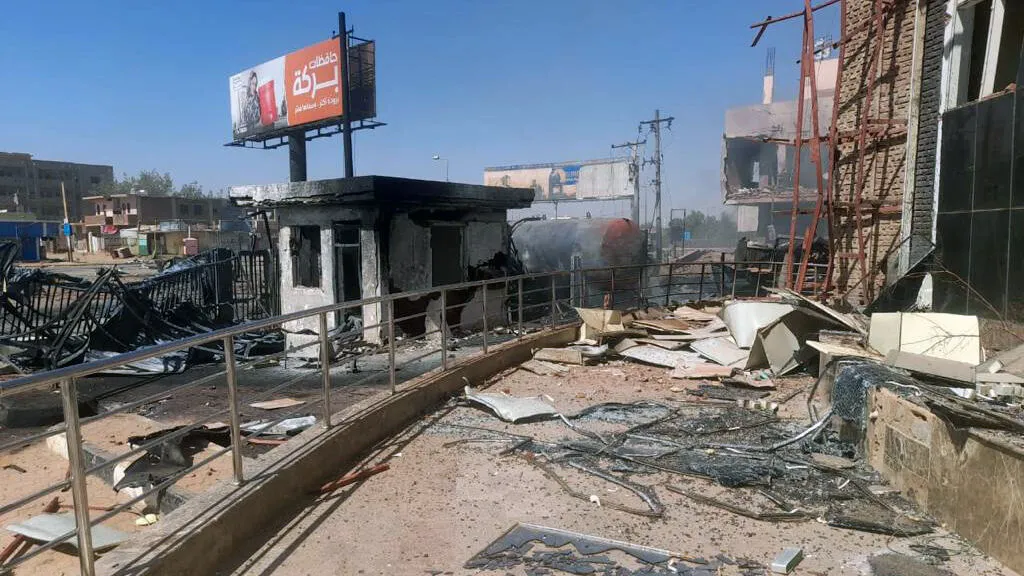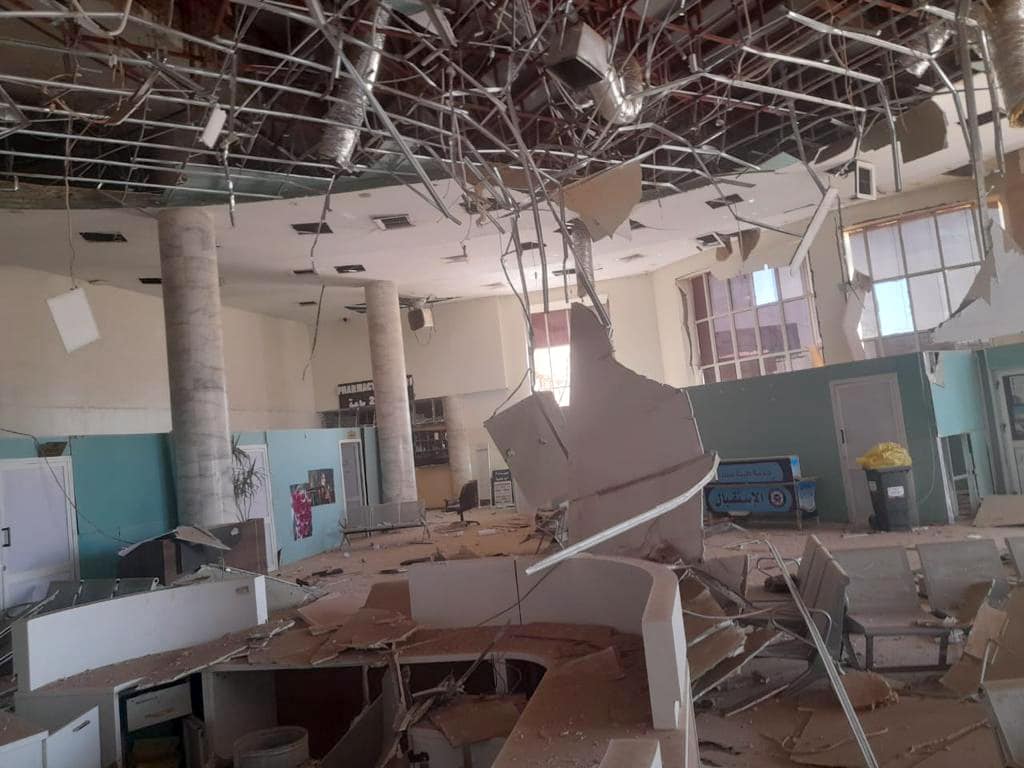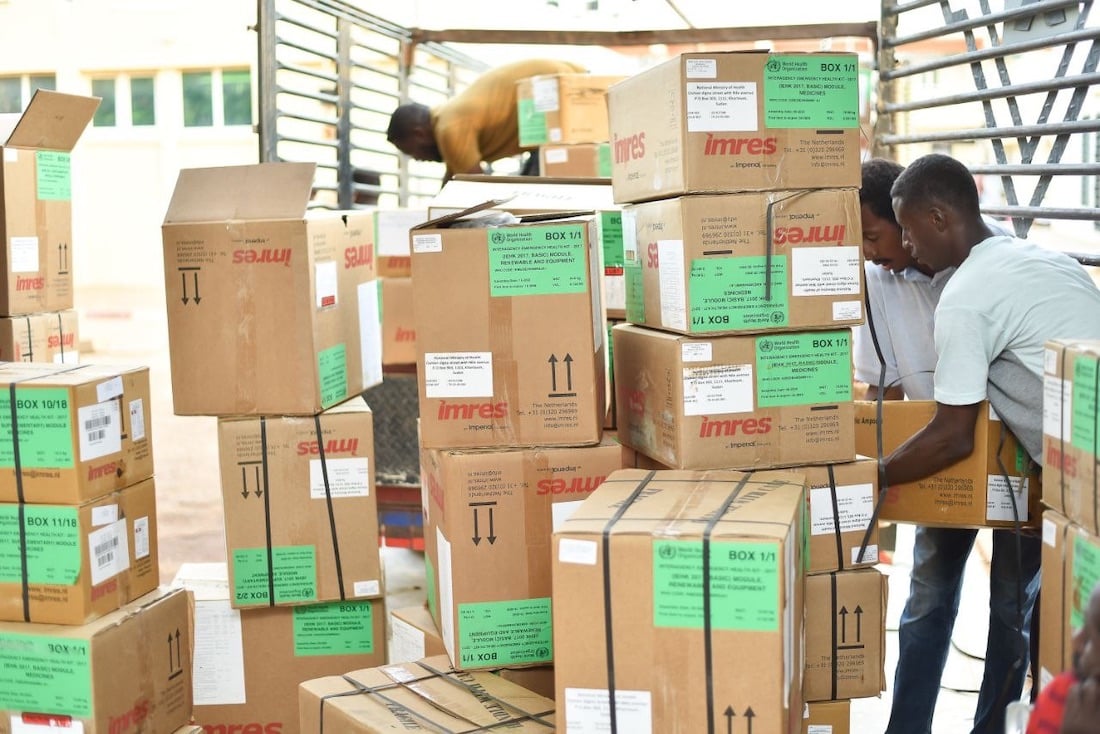Sudan Crisis: How to Help
Sudan’s health system is on the verge of collapse as violent conflict continues. Learn more about what’s happening and what Project HOPE is doing to help.

In April 2023, violent conflict erupted in Sudan between the Sudanese Armed Forces and the Rapid Support Forces. The violence has devastated the country in the months since, claiming the lives of more than 1,200 people and injuring over 8,300. At least 5.5 million people have been displaced.
The country’s health system stands on the brink of collapse, with health workers unable to access the medicines and supplies they need to care for their communities.
Here’s the latest on what’s happening and Project HOPE’s response.
1. Health workers and health facilities are being targeted.
The World Health Organization (WHO) has verified at least 57 attacks on health workers and facilities, and the Sudan Doctors Union reports that at least 21 health workers have been killed, including doctors, staff, and medical students.
In addition to bombings, health facilities have been occupied and looted, creating widespread shortages of medicines and medical supplies. According to the United Nations, around 67 percent of hospitals in the affected areas are closed and 60 percent of health facilities across the country remain non-functional.
In August 2023, Project HOPE delivered two Interagency Emergency Health Kits (IEHKs) to Al-Nau Hospital in Omdurman, which had enough medical supplies to serve the primary health care needs of 20,000 people for up to three months. The supplies were undamaged when the hospital was bombed weeks later in an attack that claimed the lives of multiple civilians.

“Nonstop violence has made it incredibly difficult to deliver medicine or medical supplies to conflict zones. Hospitals are running out of oxygen, blood supply, and lifesaving drugs by the hour and health workers are working beyond the point of exhaustion,” said Project HOPE President and CEO, Rabih Torbay. “Health workers across the country have faced compounding crises over recent years and now, they must go to work while fearing for their lives and the safety of their families as health centers and civilians continue to be targeted. Without access to critical health services, more and more people in Sudan will be left to die.”
2. Humanitarian aid has been significantly disrupted.
Nearly all the entry points into Sudan are closed or extremely difficult to navigate, causing uncertain and lengthy delivery times for urgently needed medical supplies and medicine. Access to cash, electricity, internet, and fuel is limited and intermittent. In the conflict zones, there are serious water and food shortages and the prices of basic commodities have skyrocketed.
Right now, 24.7 million people — more than half the country’s population — require urgent humanitarian support. But, without secure access to supply routes, humanitarian actors are unable to operate at full capacity.
Even before this conflict, Sudan was already in a dire humanitarian situation. The country’s health system was fragile due to both a lack of skilled health workers and inconsistent access to health care in rural areas. These factors contributed to high child and maternal mortality rates, as well as an increased number of deaths from outbreaks of communicable diseases. The current conflict has only exacerbated these and other humanitarian challenges.

3. Millions of people are being displaced.
According to the latest data from the United Nations International Organization for Migration (IOM), about 5.5 million people have been displaced, including large numbers of people who have fled the country for Egypt, Libya, Chad, Central African Republic, South Sudan, and Ethiopia. Of those making the difficult decision to flee, many arrive at their destination with injuries and urgently need medical care and humanitarian assistance.
The region recently entered its rainy season and flooding could pose additional concerns for displaced communities, particularly those living in shelters. Additionally, overcrowding and a lack of clean water increases the risk of contracting and spreading infectious and waterborne diseases.
Before this crisis, Sudan was already home to around 3.8 million internally displaced people, the majority of whom lived in Darfur and required severe humanitarian assistance.
4. Children and women are at extreme risk for harm.
Women and children are being targeted and are in urgent need of protection. Women and children comprise 90 percent of the 5.5 million people who have been displaced, meaning some 4.9 million women and children have been forced to flee home.
More than 13 million children in Sudan urgently need humanitarian support. During times of conflict like these, children are also at an increased risk for other protection concerns, including abuse and gender-based violence (GBV).
As another result of the insecurity in Sudan, there is a severe shortage of reproductive and maternal health services. Over 2.6 million women and girls of reproductive age urgently require health assistance — including approximately 262,880 who are pregnant, according to the WHO and United Nations Population Fund. Without action, current conditions will increase the risk of maternal and neonatal deaths.
UNHCR is reporting that women and girls are experiencing sexual and gender-based violence, and that the lack of health services have left many without medical care, including emergency contraceptives or HIV medication. Rape has long been used as a weapon of war in Sudan, according to Human Rights Watch.

5. This isn’t the first time Sudan has been inadequately supported in the face of extreme need.
Twenty years ago, Sudan broke out in a civil war between the national government – led by then President Omar al-Bashir – and two rebel groups in Darfur, the Sudan Liberation Army (SLA) and the Justice and Equality Movement (JEM). The government in Khartoum responded by launching a violent counterattack in Darfur, led by a militia group called Janjaweed. This counterattack targeted Black – or non-Arab – Africans in Darfur and used ethnic cleansing, sexual violence, and torture as weapons of war. The ensuing genocide claimed the lives of approximately 300,000 people and displaced two million more, and catapulted the country into a state of sustained insecurity over the next two decades.
How Project HOPE is Responding
Project HOPE is providing support through local partners in Sudan in response to the country’s widespread humanitarian crisis. In addition to the 24,000 pounds of relief and IEHKs, Project HOPE also provided financial support for our local partner, Nada Elazhar for Disaster Prevention and Sustainable Development (NADA), to provide vital training for health care workers, sexual and gender-based violence case management, mental health and psychosocial support, and PSAs and workshops on unexploded ordnance.
Project HOPE is continuing to secure funding and additional supplies to support the humanitarian needs in Sudan. We will continue to adapt our intervention and actively coordinate with both local and international actors to address the greatest needs as the context evolves. Project HOPE echoes our counterparts in calling for the designation of safe and secure delivery routes for the provision of urgently needed humanitarian assistance.







